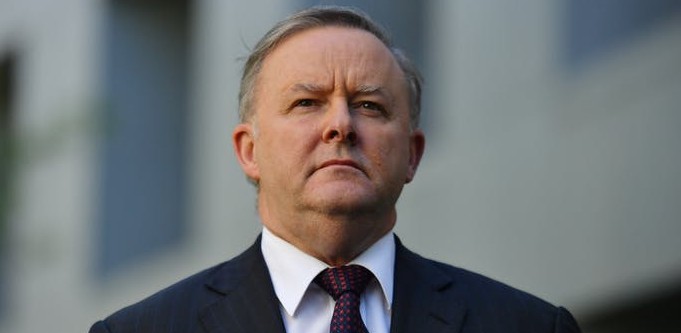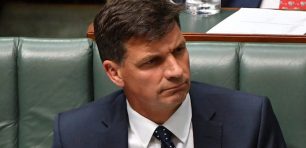
Source: AAP/Paul Miller.
A minimum wage hike of 5.1% would have a “huge impact” on small businesses already facing rising interest rates and cost pressures, the Council of Small Business Organisations Australia (COSBOA) said, after Opposition Leader Anthony Albanese flagged his party would support a base wage increase in line with inflation.
Speaking to reporters Tuesday, Albanese said a Labor government would petition the Fair Work Commission to ensure the minimum wage kept pace with the cost of living.
The cost price index increased 5.1% over the March quarter and is projected to rise 6% by the end of 2022, owing to global supply chain pressures and high demand in key industry sectors.
At the same time, wage growth is projected to lift to around 3% by the end of 2022, meaning many workers will earn significantly less in real terms through rising inflation.
When pressed on whether his party would support a 5.1% hike to the minimum wage, ensuring minimum wage earners don’t earn less in real terms than they do now, Albanese said “absolutely”.
The claim has thrust minimum wages into the election spotlight, as cost-of-living pressures eat into real earnings for many working Australians.
But many small businesses would struggle to lift wages by 5.1% while input costs and rents continue to rise, says COSBOA CEO Alexi Boyd.
Small businesses are “just about to get back up on their feet, and they’re ready to make the most of a growing economy,” she told SmartCompany.
“This will be another impediment to that growth.”
Many workers are already in line for wage increases due to widespread worker shortages, she says.
The legislated increase in super contributions to 10.5%, and the elimination of the $450 minimum monthly earnings threshold on those payments, means minimum wage workers are already in line for a de facto earnings boost from July, she added.
“So many small businesses who employ younger people, who may not be paying super as yet, need to be ready for the fact that that super is going to come from the first dollar that they earn,” she said.
Labor statement intensifies minimum wage debate
Albanese’s statement came a matter of days after the Australian Council of Trade Unions urged the Fair Work Commission’s Annual Wage Review to bump the minimum wage by 5.5%.
In dollar terms, that increase would see the minimum adult wage lift from $20.33 to $21.45 an hour.
That increase, if brought into effect, would “protect one in four working Australians from rising cost-of-living pressures,” says ACTU secretary Sally McManus.
Doing so would also benefit the small business community, she says, as “every dollar working people lose in real terms is a dollar not spent in local businesses”.
“I’m looking at it from the small businesses’ point of view,” Boyd said of the potential for increased minimum wages to flow back into local consumer spending.
Many operators are expecting their rents to rise in the new financial year through commercial leases tied to CPI growth, she says.
“Now the inputs of those two things, wages in particular, are [some of] the most expensive inputs a business has to pay for,” she said.
“You increase one of the most expensive inputs by 5%, and that’s going to have a huge impact on businesses.”
In its latest submission to the Annual Wage Review, the Australian Industry Group said it will advocate for a “modest wage increase of 2.5%”, up from the 2% hike it called for in April.
But “in the current circumstances, there is a clear risk that a high increase in wages without improved workplace productivity would fuel inflation and increase the likelihood of a steeper rise in interest rates to the detriment of growth and job creation,” said Ai Group chief executive Innes Willox.
Submissions to the Annual Wage Review are expected to close in June, after the release of official national accounts data for the March quarter.
Handpicked for you

Election 2022: What have the major parties done for small business?



COMMENTS
SmartCompany is committed to hosting lively discussions. Help us keep the conversation useful, interesting and welcoming. We aim to publish comments quickly in the interest of promoting robust conversation, but we’re a small team and we deploy filters to protect against legal risk. Occasionally your comment may be held up while it is being reviewed, but we’re working as fast as we can to keep the conversation rolling.
The SmartCompany comment section is members-only content. Please subscribe to leave a comment.
The SmartCompany comment section is members-only content. Please login to leave a comment.